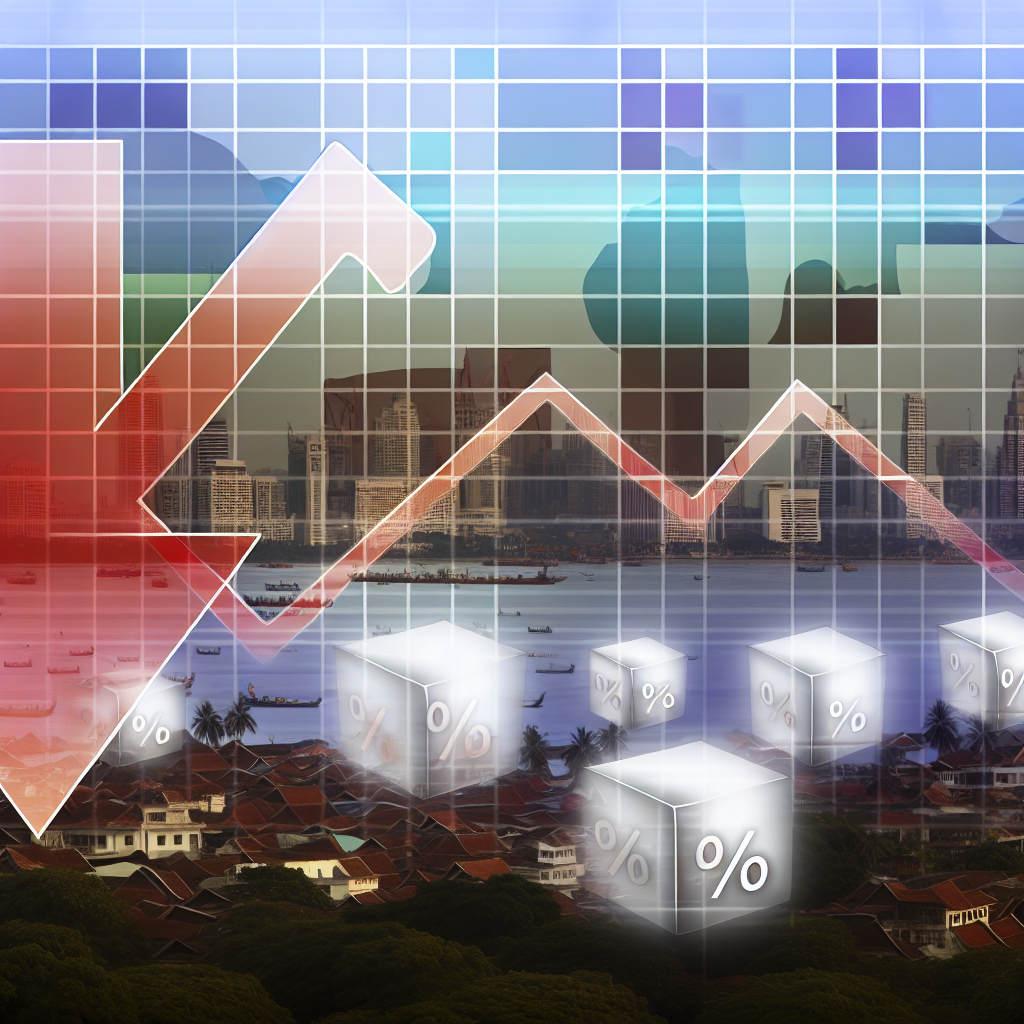Indonesia’s Stock Market: Commodity Prices Drop, Tariffs Bite
Indonesia’s stock market has recently faced significant headwinds, driven primarily by a decline in global commodity prices and the impact of rising tariffs. As one of Southeast Asia’s largest economies, Indonesia’s financial markets are closely tied to the performance of its commodity exports and international trade dynamics. This article explores the factors influencing the current market downturn, the sectors most affected, and the broader implications for investors and the Indonesian economy.
Commodity Price Decline: A Major Drag on Market Performance
Indonesia is a major exporter of commodities such as palm oil, coal, nickel, and rubber. These commodities form the backbone of the country’s export revenues and significantly influence the performance of related stocks on the Indonesia Stock Exchange (IDX). However, recent months have seen a sharp decline in global commodity prices, which has weighed heavily on the market.
For example, the price of palm oil, one of Indonesia’s key exports, dropped by nearly 20% in the first quarter of 2024 due to oversupply concerns and weaker demand from major importers like India and China. Similarly, coal prices have fallen by approximately 15%, driven by reduced energy demand in Europe and China’s efforts to transition to cleaner energy sources.
These price drops have led to a slump in the share prices of major commodity companies such as PT Indofood Sukses Makmur Tbk and PT Adaro Energy Tbk. Investors have become wary of the sector’s near-term prospects, leading to a broader market sell-off.
Tariffs and Trade Tensions: Adding Pressure to the Market
In addition to commodity price volatility, Indonesia’s stock market has been impacted by rising tariffs and trade tensions, particularly between major trading partners. The imposition of tariffs on Indonesian exports by countries like the United States and the European Union has created uncertainty and increased costs for exporters.
For instance, the EU recently imposed anti-dumping tariffs on Indonesian stainless steel products, citing unfair trade practices. This move has not only affected steel manufacturers but also disrupted supply chains for downstream industries. Similarly, the US has increased tariffs on certain Indonesian agricultural products, including coffee and spices, which has dampened export volumes.
These tariffs have led to increased operational costs for Indonesian exporters and reduced their competitiveness in global markets. The resulting pressure has been reflected in the stock prices of affected companies, contributing to the overall market decline.
Sectoral Impact: Winners and Losers
While commodity and export-oriented sectors have struggled, some areas of the Indonesian stock market have shown resilience or even growth. The following sectors illustrate the varied impact:
- Mining and Energy: Heavily impacted by falling commodity prices, companies like PT Bukit Asam Tbk have seen share prices decline by over 10% in recent months.
- Agriculture: Palm oil producers have faced significant headwinds, with PT Astra Agro Lestari Tbk reporting a 15% drop in quarterly profits.
- Consumer Goods: Domestic-focused companies such as PT Unilever Indonesia Tbk have remained relatively stable, benefiting from steady local demand.
- Technology and Telecommunications: These sectors have shown growth potential, with companies like PT Telekomunikasi Indonesia Tbk expanding their digital services amid rising internet penetration.
Case Study: PT Indofood Sukses Makmur Tbk
PT Indofood Sukses Makmur Tbk, a leading Indonesian agribusiness and food company, provides a clear example of how commodity price fluctuations and tariffs affect market performance. The company’s palm oil division experienced a revenue decline of 12% in Q1 2024 due to lower global prices and export restrictions.
Moreover, Indofood’s export operations faced increased tariffs in key markets, which compressed profit margins. As a result, the company’s stock price fell by 8% over the quarter, reflecting investor concerns about the sustainability of earnings in a challenging external environment.
Outlook: Navigating Uncertainty in 2024
Looking ahead, Indonesia’s stock market faces a complex landscape shaped by global economic conditions and domestic policy responses. Key factors to watch include:
- Commodity Market Recovery: Any rebound in commodity prices, driven by supply adjustments or increased demand, could provide relief to the market.
- Trade Negotiations: Progress in resolving tariff disputes and enhancing trade agreements would improve export prospects.
- Government Stimulus: Fiscal and monetary policies aimed at supporting economic growth could bolster investor confidence.
- Domestic Consumption: Strong local demand may help offset export-related weaknesses, particularly in consumer-driven sectors.
Conclusion
Indonesia’s stock market is currently navigating a challenging period marked by falling commodity prices and the adverse effects of tariffs. These factors have created headwinds for key export sectors, leading to market volatility and investor caution. However, the resilience of domestic-focused industries and potential policy interventions offer some optimism for recovery.
For investors, understanding the interplay between global commodity trends, trade policies, and domestic economic conditions is crucial for making informed decisions. As Indonesia continues to adapt to these external pressures, the stock market’s trajectory will depend on both global developments and the country’s ability to diversify and strengthen its economic foundations.





